Cafe franchises in South Korea are going upscale by brewing premium drinks including specialty coffee and high-end tea.
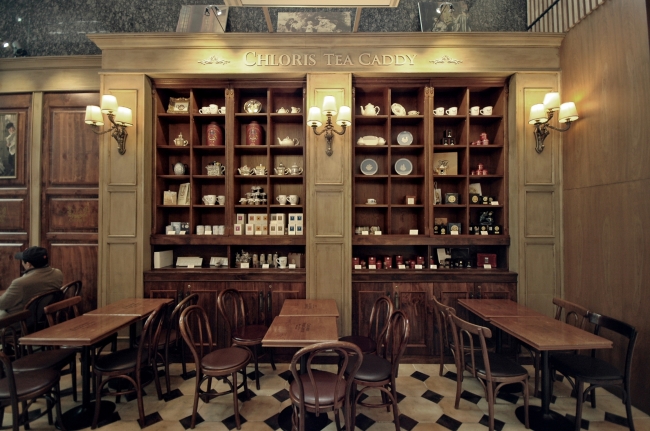 |
Tea cafe franchises offer high-end tea (Chloris Tea & Coffee) |
It took time, money and effort just to try such premium beverages in the past, but franchises are clearing the barriers to beverages made by veteran professionals with top-end ingredients.
Even major coffee shop chains have got in on the act, with Tom N Toms Black, Twosome Place Roastery Cafe and Starbucks Reserve.
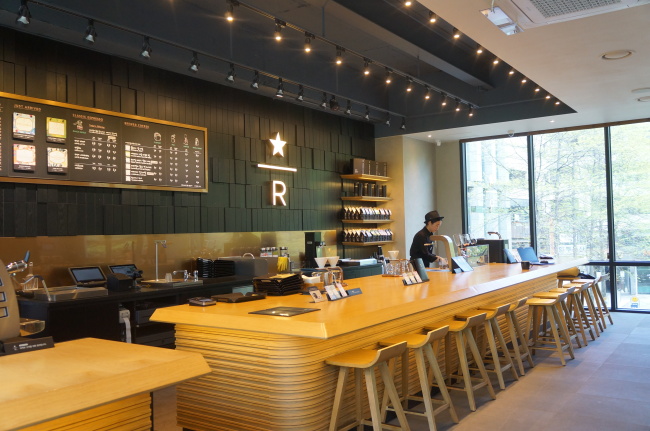 |
Starbucks Reserve bar at Gwanghwamun branch (Im Eun-byel/The Korea Herald) |
A new upscale brand of the US coffee chain, Starbucks Reserve is keen to offer a “different taste,” an unusual departure from the franchise’s emphasis on consistency -- people expect an Americano from New York to taste exactly the same as one from Seoul.
At Starbucks Reserve, customers can pick and choose from three to six high-end beans such as Jamaica Blue Mountain and Colombia la Union, priced between 6,000 won ($5) and 9,000 won. The beans reflect the season, as new options are released every three months. Customers can also have the coffee brewed by hand (traditional pour-overs), or by high-end coffee makers.
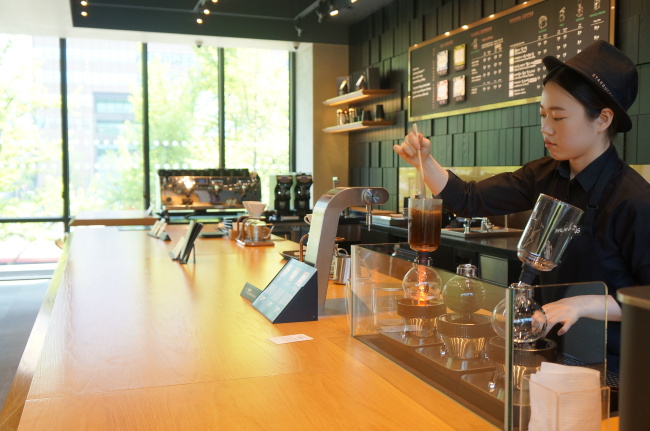 |
A barista makes premium coffee using a Siphon, a high-end brewing machine (Im Eun-byel/The Korea Herald) |
“Starbucks Reserve wants interaction with the customers as we make coffee for them,” said Kim Da-jung, a barista in a black apron symbolizing extra training. “Baristas have to get to know the customers on a personal level to serve them the preferred coffee.”
At present, there are 60 Reserve branches in Korea. Their sales increased around 30 percent in 2016 compared to the year before, when there had been 44 branches.
The push for premium brands comes as the broader coffee and cafe business has become overcrowded. The franchises, however, are not taking too many risks in the new market. Instead of opening new stores from scratch, Starbucks refurbished five branches in 2014 that had seen high sales in drip coffee and coffee beans. At Reserve branches, specialty coffee bars now co-exist with regular bars.
To keep down costs and maintain balanced sales, the coffee masters for the Reserve counters also rotate shifts to work at the regular bar. Specialty coffees -- however alluring -- are not mainstream yet.
For instance, the Gwanghwamun branch’s regular bar sells about 1,000 cups of coffee on an average day, while the Reserve bar sells about 100 cups.
Coffee is not the only premium drink being tested in the market. Franchises devoted to high-end teas, such as O’sulloc, Ogada and Chloris Tea & Coffee, are also competing to capture the hearts of tea lovers.
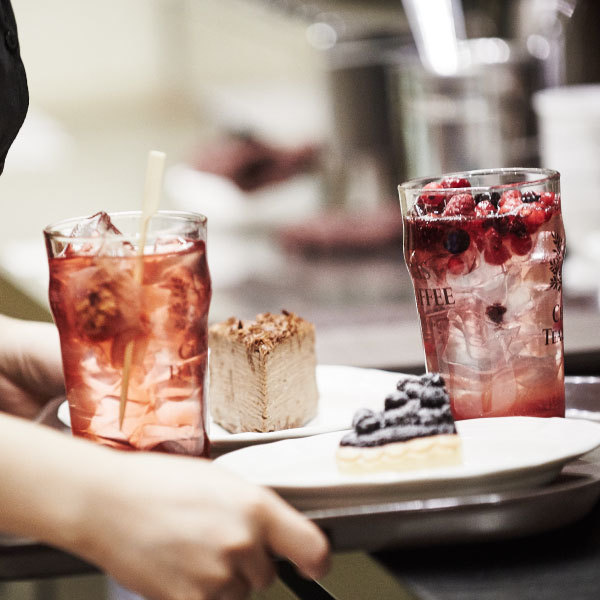 |
The drinks are prepared with high-quality ingredients (Chloris Tea & Coffee) |
Chloris Tea & Coffee is a European-style tea franchise with 12 branches in Seoul. Opening its first branch in 2003, it has been expanding aggressively over the past few years. Even though it has coffee on the menu, more than 65 percent of customers order teas.
The cafe’s signature items include Classic Milk Tea and Chloris Garden Herb Tea. The drinks are prepared with high-quality tea leaves and organically grown herbs, not with tea bags. Their prices range between 5,000 and 7,000 won.
The tea franchise plans to expand its branches in major office buildings. It has also sealed a deal to launch branches in Southeast Asia.
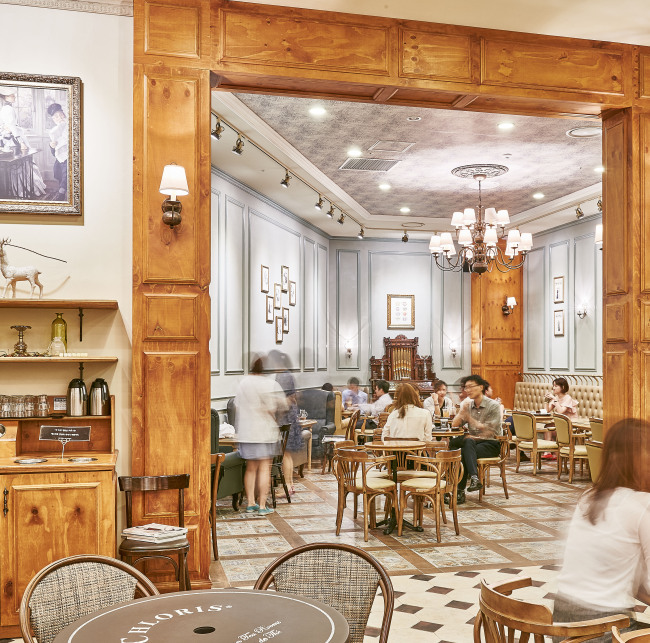 |
Tea is no longer a fringe option (Chloris Tea & Coffee) |
Some independent cafe owners are knitting their brows at the expansion of such high-end coffee and tea shops. Huh Hyun-sook, who runs a cafe named Narino, says that her shop has been serving specialty coffee for more than 10 years.
Huh is confident that the coffee franchises cannot entirely overtake the premium coffee market. “They can never prepare the coffee beans as we do,” she said. “Franchises are huge companies with complex business systems. They are unable to sell small-lot coffee beans in fresh condition like us.”
By Im Eun-byel (
silverstar@heraldcorp.com)












